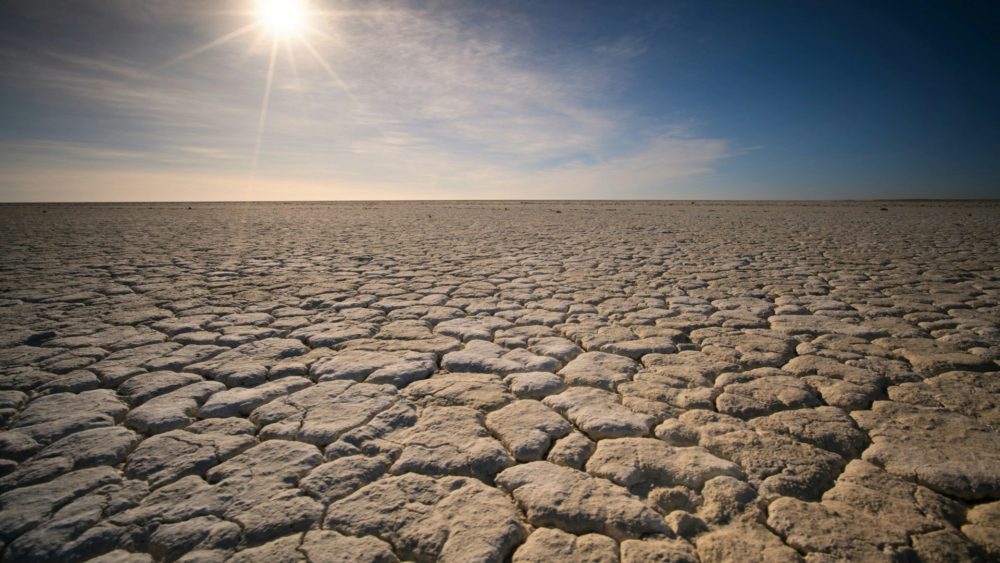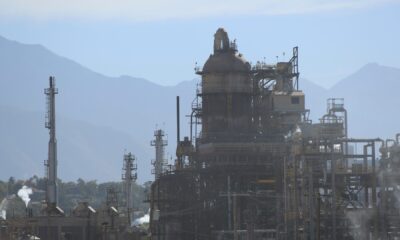Africa
Bridging Africa’s Climate Finance Gap: A Roadmap for Green Transformation
The Africa Insights 2025 report reveals Africa received only $52.1 billion in climate finance in 2022, far short of the $190 billion needed annually. It highlights five strategic sectors and four operational levers to close this gap, urging bold investment, innovative financing, and collaboration to transform Africa’s vulnerabilities into green economic opportunities and global climate stability.

With only $52.1 billion in climate flows in 2022 compared to $190 billion in annual needs, the Africa Insights 2025 report identifies five strategic sectors and four operational levers to fill this gap.
The 10th Africa Insights report, launched in mid-June by Casablanca Finance City (CFC) and Oxford Economics Africa under the title “Catalyzing Africa’s Sustainable Transition,” provides a stark assessment of the continent’s climate financing, revealing a glaring paradox and an urgent call to turn words into action. The report powerfully underscores the fundamental imbalance facing Africa.
“Although it contributes only modestly to global greenhouse gas emissions, the continent is disproportionately vulnerable to the effects of climate change,” it reads.
Exacerbated vulnerability—extreme climate events, droughts, floods, and infrastructure degradation—comes up against severely limited capacity for action. The report clearly identifies the structural constraints: “multidimensional poverty, structural underdevelopment, limited fiscal space, high debt burdens, and restricted access to affordable international capital.” These constraints, compounded by “escalating geopolitical disruptions,” are literally undermining resilience and inclusive development. Yet, as the report notes, Africa is at a “pivotal moment.”
Colossal Needs, Derisory Flows
The heart of the problem lies in the financial abyss. The report quantifies the challenge: annual needs estimated at USD 190 billion to meet the Nationally Determined Contributions (NDCs). The reality of flows in 2022? “Only USD 52.1 billion, or 3.3% of global climate finance.”
This “critically low” level is an admission of collective failure. The current dominance of the public sector, primarily through multilateral Development Finance Institutions (DFIs), is highlighted, while the private sector remains in the background.
The reasons are well known but must be addressed with renewed vigor: “high risks, political and regulatory barriers, weak investment frameworks, insufficient incentives, limited institutional and human capacity, poor project preparation, and a shortage of bankable projects.” Bridging this gap is not optional, but “essential for systemic climate resilience” and for unlocking Africa’s economic potential.
The Untapped Potential of Key Sectors in Africa
Despite structural challenges, the Africa Insights report identifies five strategic sectors where Africa holds a decisive comparative advantage for its green transition. Renewable energies—solar, wind, and hydropower—represent “abundant” but “underutilized” potential, providing a foundation for deep decarbonization and energy independence.
Sustainable agriculture is emerging as a key lever for simultaneously improving food security and the livelihoods of rural populations. Resilient infrastructure, vital for protecting vulnerable communities from climate shocks, is a pillar of sustainable development.
Furthermore, critical mineral reserves position the continent as an “indispensable” player in the global green transition, while the blue economy reveals “untapped” potential in the management of marine and coastal resources.
Collectively, these sectors offer concrete avenues for investment, job creation, and emissions reduction, generating tangible socioeconomic dividends. The report thus underscores the urgent need to increase sustainable concessional finance flows and innovate beyond traditional instruments to catalyze this transformation.
Operational Levers for Effective Transformation
That said, the transition to a resilient economy requires innovative financial mechanisms and concrete policy frameworks. The report promotes instruments such as blended finance, sustainable bonds, debt-for-nature swaps (DFNs), impact funds, and carbon markets—essential for mobilizing capital in the face of worsening budget deficits and sovereign debt.
However, their effectiveness depends on four fundamental conditions. First, incentive-based policy frameworks must reduce perceived risks and attract private capital. Second, technical capacity building and better preparation of bankable projects are crucial to improve the visibility of investment pipelines.
Third, international financial centers (IFCs) like Casablanca Finance City must play a central role in channeling financing to strategic sectors. Fourth, multi-stakeholder partnerships—including PPPs and the African diaspora through its remittances—must be amplified.
Finally, alignment with ESG standards and the Paris Agreement Article 6.4 framework for regional carbon markets is imperative to ensure credibility and effectiveness. A financial and political architecture that forms the backbone of a feasible transition.
The strategic scope of the manifesto report
Through the joint publication of this report, Casablanca Finance City (CFC) and Oxford Economics Africa are placing climate finance at the heart of African and global economic agendas. This move reveals the inadequacy of current responses to the climate emergency and requires a radical change in scale and method.
The central message unequivocally states that “closing Africa’s investment gap is essential both for systemic climate resilience and for unlocking the economic potential” of the continent. The recommendations formulated form a coherent action plan, demonstrating that the green transition represents “a significant opportunity for sustainable transformation” – not a burden.
The final call calls for “sustained commitment” and “multi-stakeholder collaboration,” emphasizing that “aligning financial flows with the Sustainable Development Goals is imperative for the continent’s future, but also a strategic investment in global climate stability.” This premise transforms African resilience into a geostrategic imperative. Financing it is not an act of charity, but an investment in collective security.
By offering this detailed roadmap, the report now turns the ball over to governments, financial institutions (DFIs and private), and ESG investors. It is up to them to transform these “ideas into action.” Africa, at this “pivotal moment,” expects actions commensurate with the scale of its challenges and the immensity of its assets.
__
(Featured image by Oleksandr Sushko via Unsplash)
DISCLAIMER: This article was written by a third party contributor and does not reflect the opinion of Born2Invest, its management, staff or its associates. Please review our disclaimer for more information.
This article may include forward-looking statements. These forward-looking statements generally are identified by the words “believe,” “project,” “estimate,” “become,” “plan,” “will,” and similar expressions. These forward-looking statements involve known and unknown risks as well as uncertainties, including those discussed in the following cautionary statements and elsewhere in this article and on this site. Although the Company may believe that its expectations are based on reasonable assumptions, the actual results that the Company may achieve may differ materially from any forward-looking statements, which reflect the opinions of the management of the Company only as of the date hereof. Additionally, please make sure to read these important disclosures.
First published in LES ECO.ma. A third-party contributor translated and adapted the article from the original. In case of discrepancy, the original will prevail.
Although we made reasonable efforts to provide accurate translations, some parts may be incorrect. Born2Invest assumes no responsibility for errors, omissions or ambiguities in the translations provided on this website. Any person or entity relying on translated content does so at their own risk. Born2Invest is not responsible for losses caused by such reliance on the accuracy or reliability of translated information. If you wish to report an error or inaccuracy in the translation, we encourage you to contact us

-

 Impact Investing2 weeks ago
Impact Investing2 weeks agoClimate Losses Drive New Risk Training in Agriculture Led by Cineas and Asnacodi Italia
-

 Crowdfunding1 week ago
Crowdfunding1 week agoReal Estate Crowdfunding in Mexico: High Returns, Heavy Regulation, and Tax Inequality
-

 Africa2 weeks ago
Africa2 weeks agoAgadir Allocates Budget Surplus to Urban Development and Municipal Projects
-

 Cannabis4 days ago
Cannabis4 days agoSouth Africa Proposes Liberal Cannabis Regulations with Expungement for Past Convictions

























